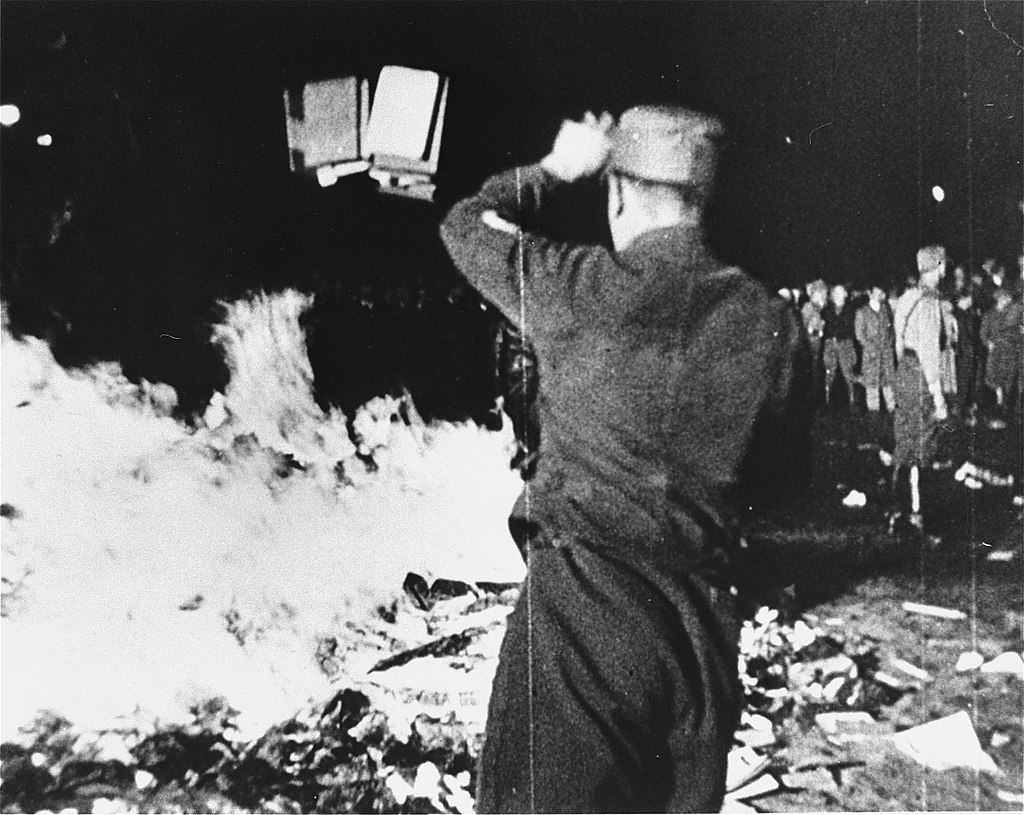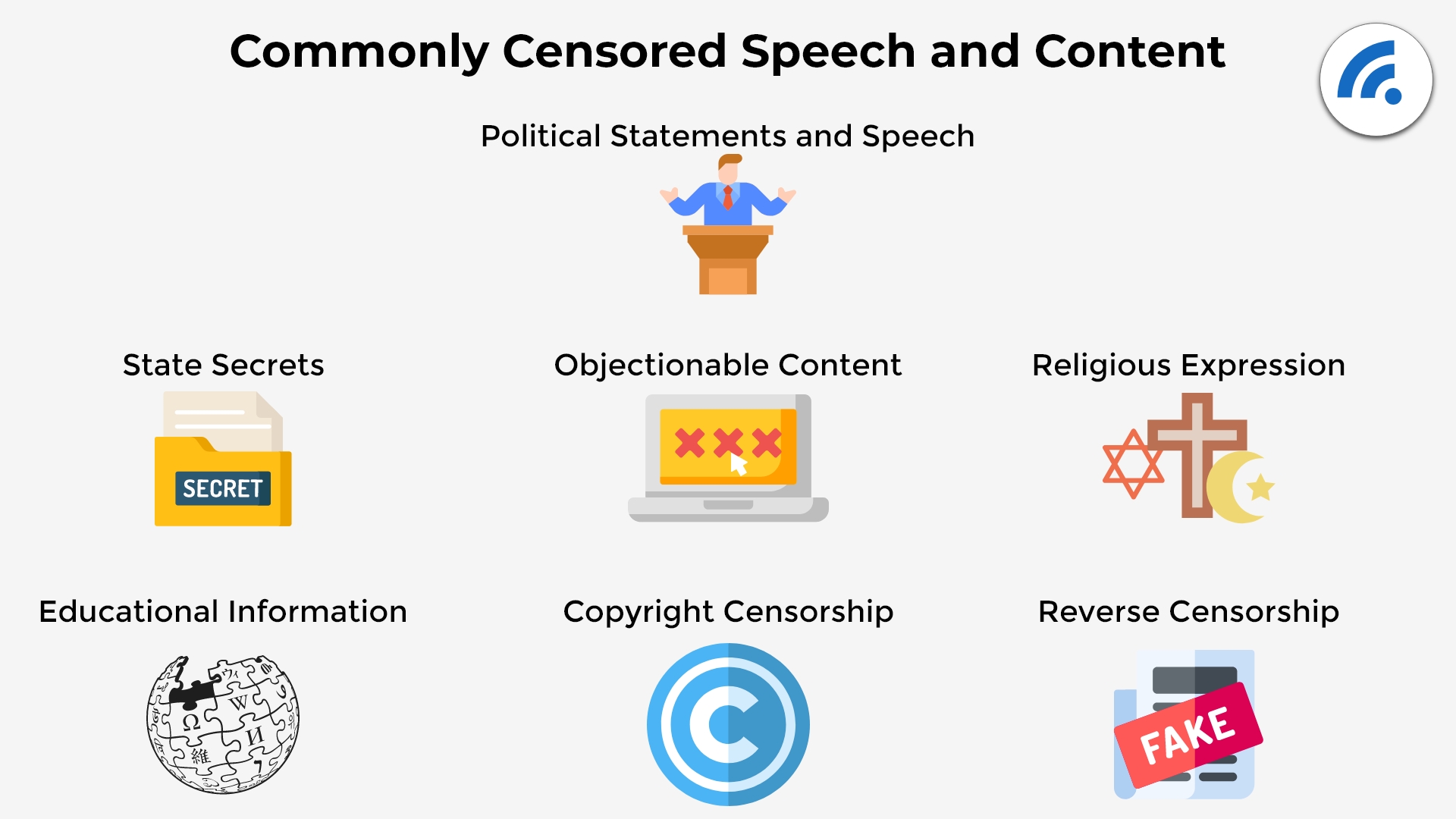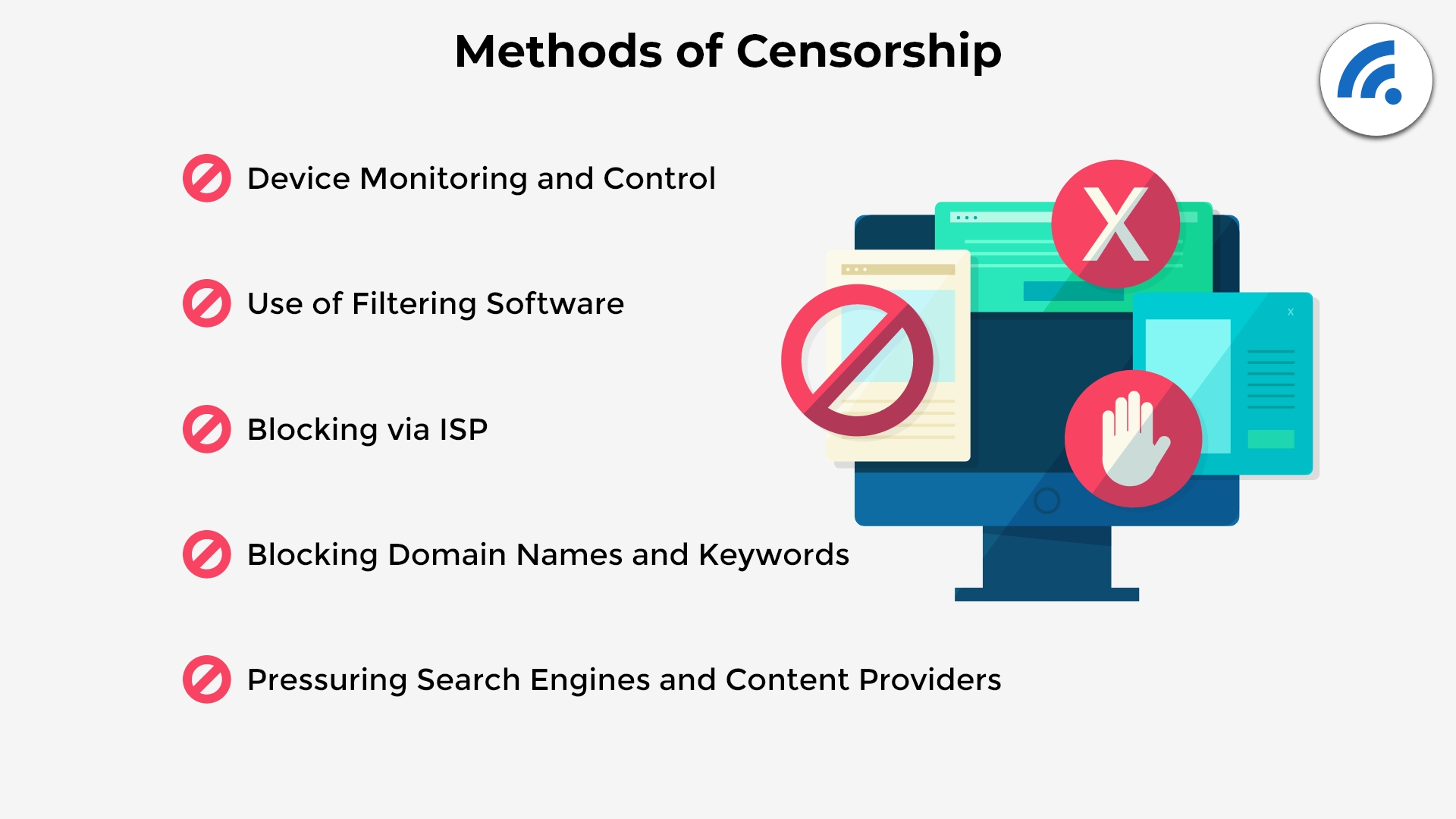Censorship
| URL |
https://Persagen.com/docs/ |

Nazi book burning in Berlin, 1933-05-10.
[source]
|
| Sources |
Persagen.com | Wikipedia | other sources (cited in situ) |
| Source URL |
https://en.wikipedia.org/wiki/Censorship |
| Date published |
2021-11-16 |
| Curation date |
2021-11-16 |
| Curator |
Dr. Victoria A. Stuart, Ph.D. |
| Modified |
|
| Editorial practice |
Refer here | Date format: yyyy-mm-dd |
| Summary |
Censorship is the suppression of speech, public communication, or other information. This may be done on the basis that such material is considered objectionable, harmful, sensitive, or "inconvenient". Censorship can be conducted by governments, private institutions, and other controlling bodies. |
| Related |
|
| Keywords |
Show
- abortion | ban books | banned books | behaviorism | book banning | book burning | campaigned | cancel culture | censorship | child pornography | children's books | civil & political rights | civil rights | conformity | conservatism | conservative Christianity | critical race theory | critical theory | cultural rights | culture | digital rights | economic rights | economic, social, and cultural rights | education | enforcement | fraudulent science | free Speech | freedom of information | freedom of speech | freedom of the press | gay | gender | gender identity | hate speech | homophobia | homosexual | human liberties | human rights | human rights & Liberties | intellectual freedom | internet | lawmaker | letter | libel | librarians | library | local copy | media culture | national security | obscene material | obscenity | other states | political ideologies | political rights | politics | pornographic | proscription | pseudoscience | psychology | public libraries | public schools | publisher | queer | queer identity | race | racism | religion | religious conservatism | resisting censorship | said | school board | school board members | self-censorship | sex education | sexual identity | sexuality | slander | social conservatism | social media | social rights | society | spirituality | state attorney general | suppress | suppress words | suppression | technology | trade unions | transgender | transphobia | Unionize | unions | workplace chat
|
| Named entities |
Show
- 33 Snowfish (book) | Adam Rapp | American Civil War | Beloved (book) | Black authors | Censorship | Christian right | Christianity | Democrat | Democratic Party | Facebook | Facebook Workplace | Gender Queer (book) | Gender Queer: A Memoir (book) | Glenn Youngkin | Google | Greg Abbott | Henry McMaster | Jeff Cason | Kirk Twigg | LBGT | LGBT | LGBT - hatred against | LGBTQ | LGBTQ issues | LGBTQ+ | LGBTQ+ authors | Maia Kobabe | Maine | Matt Krause | Missouri | Nazi book burnings | Nazi Germany | Nazi ideology | Nazism | North Carolina | Pulitzer Prize | Pulitzer Prize for Fiction | Rabih Abuismail | Republican | Republican Party | Republicans | South Carolina | Spotsylvania County | Spotsylvania County Public Schools | Terry McAuliffe | Texas | Texas Governor Greg Abbott | Texas State Representative | Toni Morrison | Virginia | Virginia Gubernatorial Race
|
| Ontologies |
Show
- Culture - Cancel Culture
- Culture - Cultural studies - Media culture - Deception - Media manipulation - Propaganda - Propaganda techniques - Historical negationism
- Culture - Cultural studies - Media culture - Deception - Media manipulation - Propaganda - Propaganda techniques - Historical revisionism
- Culture - Cultural studies - Media culture - Issues - Freedom of speech
- Culture - Spirituality - Religion - Religious conservatism - Conservative Christianity
- Science - Formal sciences - Information science - Intellectual freedom
- Science - Issues - Integrity - Fraudulent science - Pseudoscience
- Science - Social sciences - Psychology - Behaviorism - Conformity - Enforcement - Proscription - Censorship
- Science - Social Sciences - Psychology - Behaviorism - Conformity - Enforcement - Proscription - Censorship - Cancel culture
- Google LLC - Issues - Censorship
- Society - Critical theory - Critical race theory
- Society - Rights - Human rights - Civil and political rights - Right to protest - Freedom of speech
- Society - Rights - Human rights - Civil and political rights - Right to protest - Freedom of the press
- Society - Human rights & Liberties - Economic, social, and cultural rights - Digital rights - Freedom of information
- Society - Issues - Censorship
- Society - Issues - Education - Christian right
- Science - Issues - Integrity - Fraudulent science - Pseudoscience - Pseudohistory
- Society - Issues - Free Speech
- Society - Issues - Freedom of the press
- Society - Issues - Discrimination - Anti-LGBT discrimination - Homophobia
- Society - Issues - Discrimination - Anti-LGBT discrimination - Transphobia
- Society - Issues - Religion - Christian right
- Society - Politics - Political ideologies - Conservatism
- Society - Politics - Political ideologies - Conservatism - Social conservatism - Religious conservatism - Christian right
- Technology - Internet - Internet censorship
- Technology - Internet - Social media - Censorship
- Science - Social Sciences - Psychology - Behaviorism - Conformity - Enforcement - Proscription - Censorship - Cancel culture
|
This is a draft article [additional content pending]..
Please see Wikipedia for the continuation of this content ...
Background
Censorship is the suppression of speech, public communication, or other information. This may be done on the basis that such material is considered objectionable, harmful, sensitive, or "inconvenient." Censorship can be conducted by governments, private institutions, and other controlling bodies.
Governments and private organizations may engage in censorship. Other groups or institutions may propose and petition for censorship. When an individual such as an author or other creator engages in censorship of his or her own works or speech, it is referred to as self-censorship. General censorship occurs in a variety of different media, including speech, books, music, films, and other arts, the press, radio, television, and the Internet for a variety of claimed reasons including national security, to control obscenity, child pornography, and hate speech, to protect children or other vulnerable groups, to promote or restrict political or religious views, and to prevent slander and libel.
Direct censorship may or may not be legal, depending on the type, location, and content. Many countries provide strong protections against censorship by law, but none of these protections are absolute and frequently a claim of necessity to balance conflicting rights is made, in order to determine what could and could not be censored. There are no laws against self-censorship.
This is a draft article [additional content pending]..
Please see Wikipedia for the continuation of this content ...
Additional Reading
[Thomson Reuters Foundation: news.Trust.org, 2022-02-04] U.S. school books - the latest LGBTQ+ rights battleground. Bills proposed in almost a dozen U.S. states seek to crack down on books and lessons with LGBTQ+ themes. | State bills seek to ban "divisive" books, teaching | Proponents say parents should be given more control | LGBTQ+ rights activist denounces "hostile rhetoric"
A United States culture war over LGBTQ+ rights has played out on school sports fields and in doctors' surgeries in recent years. Now, the clash between liberals and conservatives is heading to the nation's classrooms. Rights campaigners and teachers are on alert over nearly a dozen state bills that seek to ban books and ban lessons related to sexuality and gender identity, putting LGBTQ+ issues back in the political spotlight ahead of 2022-11's mid-term elections. "Censorship in the classroom and beyond has always been an issue. However, these most recent bans have increased in volume and ferocity in the past year," said Sarah Miller [local copy], program coordinator of the National Council of Teachers of English.
Since the start of 2022 alone, Republican lawmakers in 20 states have proposed legislation targeting school books, according to the legislative tracking service Freedom for All Americans. Many of the proposals are aimed at curbing the teaching of "critical race theory", which rests on the premise that racial bias - intentional or not - is baked into U.S. laws and U.S. institutions. But 11 of the bills seek to give parents the right to challenge school curriculums or prohibit teachers from engaging in "divisive" subjects, which could include topics or books covering LGBTQ+ issues.
Proponents of the legislation say parents should have a bigger say in their children's education - potentially overriding administrators, and that religious freedom means parents and students should be able to challenge some material. "Parents should not only have the ability to speak to their child's curriculum, but in fact they have the right to direct their child's upbringing, and education is at the very core of that right," said Meridian Baldacci [local copy], spokesperson for Family Policy Alliance [formerly Focus on the Family Action; see also: Focus on the Family], a right-wing Christian lobbying group [see also: Christian Right]. "When schools begin teaching particular viewpoints about sexuality and other adult issues as if they are decided facts, parents can and should step in," she told the Thomson Reuters Foundation.
The school curriculum is the latest arena in a battle over LGBTQ+ rights that has exposed a growing divide between more liberal and conservative parts of the United States, and between political rivals. Last year [2021], more than 120 bills aimed at transgender rights were proposed in U.S. states , mainly aimed at restricting access to sports and gender-affirming medical treatment for transgender minors [see also: transphobia], according to LGBTQ+ rights organization Human Rights Campaign.
Library Fines
The teaching of LGBTQ+-related books in the classroom has frequently caused controversy in the United States. In 2019, eight of the top 10 most challenged or banned U.S. library, school or university books contained LGBTQ+ content, according to the American Library Association's Office for Intellectual Freedom, a group that promotes library access and freedoms. The bills currently in state legislatures target both the books themselves and the schools that make them available to students. One, in Oklahoma, proposes fining schools and librarians that continue to stock books challenged by parents. In South Carolina, Texas and Utah, elected officials have sent letters to school districts asking them to investigate certain titles in school libraries. One list in Texas includes more than 800 books, including She/He/They/Them: Understanding Gender Identity by Rebecca Stanborough, and Honestly Ben, by Bill Konigsberg. Both books deal with teenagers navigating their sexuality identity or gender identity.
"Silver Lining"
There has been a barrage of "hostile rhetoric and behavior targeting vulnerable young people and books about their lives," Sarah Kate Ellis, chief executive of the country's largest LGBTQ+ rights group GLAAD, said in a statement about the state bills. Proponents of the draft legislation say the proposals simply aim to represent parents' interests on behalf of their children. While schools carry authority in the educational context, parents know their children best and are naturally concerned about their well-being, meaning they should have a say on what they learn, said the Family Policy Alliance's Meridian Baldacci. But teachers and school administrators are concerned legislative restrictions could intensify the pressures they face as the COVID-19 pandemic strains the education system. "The addition of restrictive state laws, personal attacks on teachers and administrators, and arbitrary and time-consuming challenges are placing additional burdens on teachers at a time when they are already stretched to their limit due to the COVID-19 pandemic," Sarah Miller said.
Critics say efforts to limit children's reading materials will likely backfire anyway, citing examples of banned books - from D.H. Lawrence's Lady Chatterley's Lover, to Boris Pasternak's Doctor Zhivago - that thrived from prohibition. In Kutztown, Pennsylvania, local students started a "banned book club" meeting every other week at a local bookstore in the northeastern state. Heathcliff Lopez [local copy], an English teacher in the San Antonio, Texas area, said he had specifically added titles, such as All Boys Aren't Blue by George M. Johnson, included on a list of books to ban in schools drawn up by Texas lawmaker Matt Krause. "The only little bit of a silver lining is when you tell students this book is on that list, or the district doesn't want you to read this book, all of a sudden it's the book that I can't keep on my shelf," Heathcliff Lopez said.
[theAtlantic.com, 2022-02-02] Book Bans Are Targeting the History of Oppression. The possibility of a more just future is at stake when young people are denied access to knowledge of the past.
[DemocracyNow.org, 2022-02-02] The Silencing of Black & Queer Voices: George M. Johnson on 15-State Ban of "All Boys Aren't Blue".
School districts and Republican-controlled state legislatures are rapidly intensifying efforts to ban certain books about race, colonialism, sex and gender identity from public classrooms and libraries. The wave of book bans - with more than 70 educational gag order bills being introduced in legislatures over the past month alone - have been largely led by right-wing groups funded by Charles Koch. We're joined by author George M. Johnson [local copy | Wikipedia: George Matthew Johnson] to talk about their award-winning memoir-manifesto All Boys Aren't Blue, which deals with homophobia, transphobia and racism and has been targeted for removal in at least 15 states. "Black storytelling has often been banned," says George M. Johnson. "My book is a tool so that Black queer kids and LGBTQ teens can see themselves and read about themselves and learn about themselves." Johnson also says the bans have only given youth more access points to their book and argues the recent bills imposed by conservatives are "all about the fear of losing the control of the minds that they have had in this country since its early founding."
[BroadBandSearch.net, 2021] Internet Censorship in 2021: Where The World Stands Today.
 Common forms of internet censorship.
[Source]
Common forms of internet censorship.
[Source]
 Common methods of internet censorship.
[Source]
Common methods of internet censorship.
[Source]
[19thNews.org, 2021-11-16] Librarians Are Resisting Censorship of Children's Books by LGBTQ+ and Black Authors. Attempts to keep books out of school libraries aren't new, but there has been a recent increase in political challenges to literature.
[NPR.org, 2021-11-13] More Republican leaders try to ban books on race, LGBTQ issues.
In the latest call from Republican leaders to ban certain books in schools, South Carolina Governor Henry McMaster is telling his state's department of education to investigate a graphic novel on queer identity being available at a school's library. He says the content in the book is "sexually explicit" and "pornographic."
The book, Gender Queer: A Memoir by Maia Kobabe, is recommended for grades 10 and up by its publisher and tells an autobiographical story of a person who is grappling with their gender and sexual identity.
"I call on the Department of Education or the State Board of Education, as appropriate, to promulgate statewide standards and directives to prevent pornography and other obscene content from entering our State's public schools and libraries," the governor said in a letter [Archive.org snapshot | local copy] sent Wednesday [2021-11-10] to the superintendent of education.
Henry McMaster's call is the latest instance of Republican elected leaders and local school board members lashing out at books in school libraries that address topics such as queer identity, racism and sex education.
In Texas, Governor Greg Abbott [main entry: Greg Abbott] sent a letter to the state's school board association saying public schools shouldn't have "pornographic or obscene material." He did not provide any specific examples of content.
But Texas state Representative Jeff Cason called on the state's attorney general to investigate "sexually explicit material in public schools," including Gender Queer.
Another Texas lawmaker running for attorney general - Matt Krause - identified a list of 850 books that he says should be questioned; many of those books are written by women, people of color and LGBTQ authors.
Several other states, including Virginia, North Carolina, Maine and Missouri have also targeted certain books available in schools, often telling stories of young people of color and narratives that include U.S. history of segregation and racism.
The Topic Led the Virginia Gubernatorial Race
The topic of investigating and banning certain books came further into the national spotlight during the recent Virginia gubernatorial race.
Republican winner Glenn Youngkin campaigned off the idea that his opponent, Democrat Terry McAuliffe, didn't want parents to have a say in what their children are being taught in school.
One of the books in question was Toni Morrison's Beloved, a book that tells the story of formerly enslaved people in the aftermath of the American Civil War. The book won the Pulitzer Prize for Fiction in 1988.
In a Virginia County, Two School Board Members Want to Burn the Books
In Virginia's Spotsylvania County, the school board recently voted to remove books in school libraries that had any "sexually explicit" material.
One book in particular that caused outrage is Adam Rapp's 33 Snowfish [Wikipedia entry], with a storyline that includes drug addiction, prostitution and violence.
Two Spotsylvania County Public Schools school board members, Rabih Abuismail and Kirk Twigg, went on to say they would like to see the banned books burned.
"I think we should throw those books in a fire," Rabih Abuismail said, according to NBC Washington. "I guess we live in a world now that our public schools would rather have kids read about gay pornography than Christ." Kirk Twigg said he wants to "see the books before we burn them so we can identify within our community that we are eradicating this bad stuff."
Book burning [Wikipedia entry] was a practice perpetuated in Nazi Germany in order to oppress authors and ideas that were in opposition to Nazi ideology.
[theIntercept.com, 2020-06-11] "Facebook Workplace:" Facebook Pitched New Tool Allowing Employers to Suppress Words Like "Unionize" in Workplace Chat Product.
Return to Persagen.com


